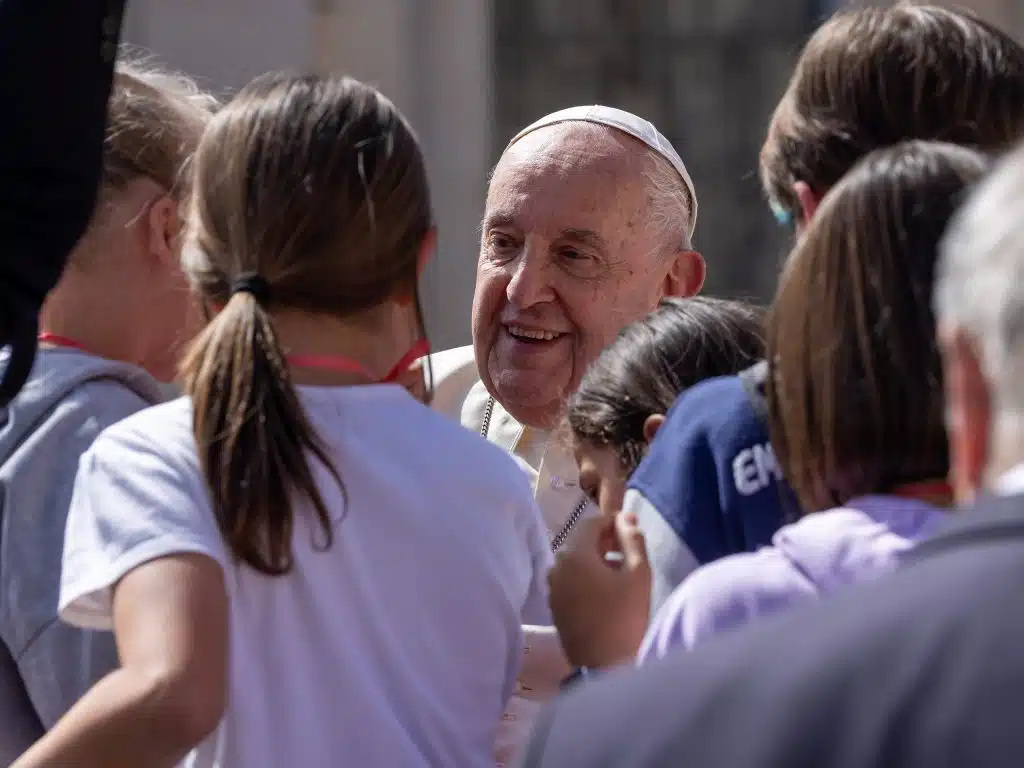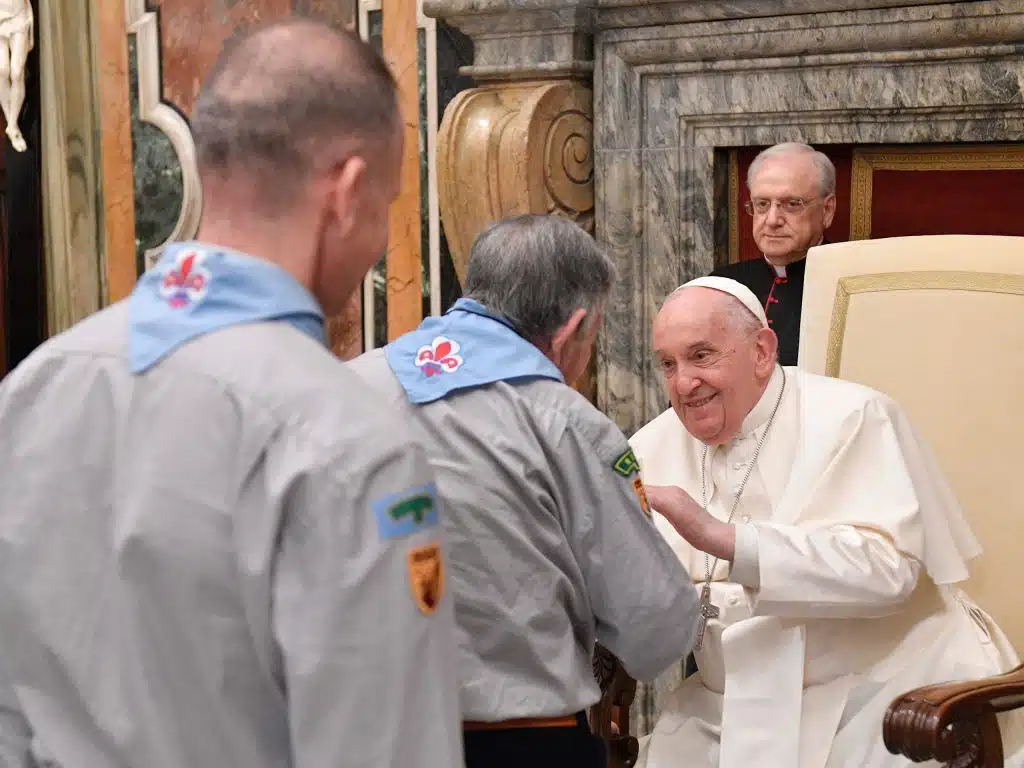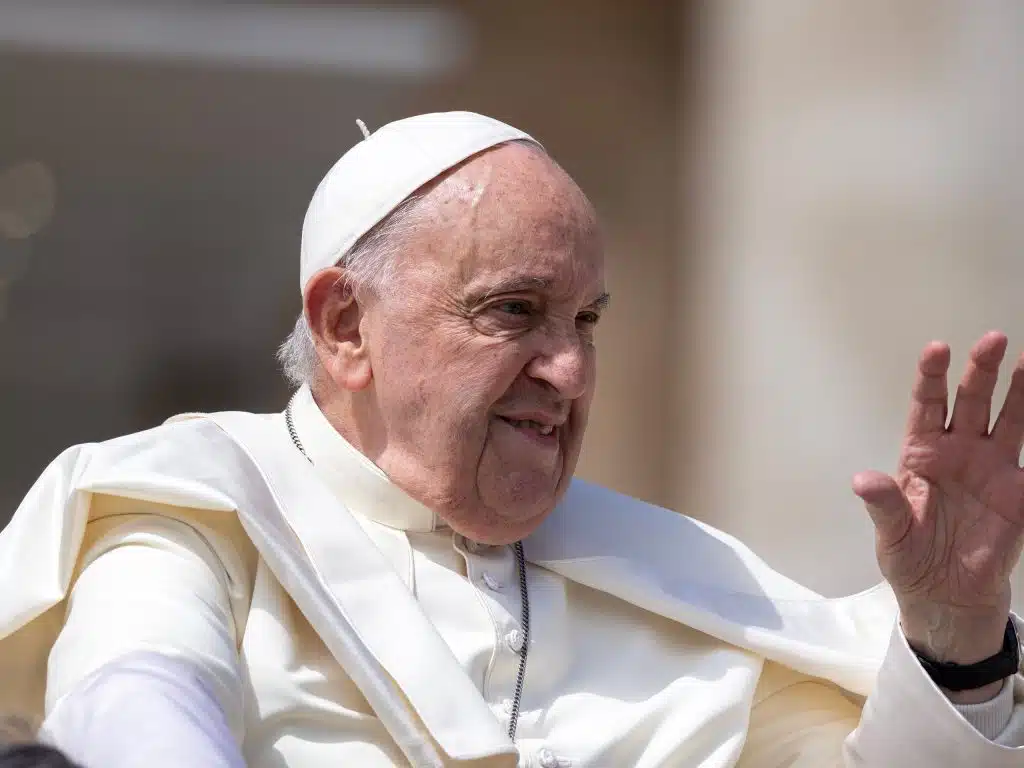VATICAN CITY – Depending on what commentary one reads, recent leaks of internal Vatican memos and private letters to Pope Benedict XVI are the work either of praiseworthy whistle-blowers or criminal moles.
Gianluigi Nuzzi, the Italian journalist who published a book based on dozens of private Vatican documents, said his main source was part of a group of Vatican employees who wanted to “help” Pope Benedict XVI clean up the Church by revealing evidence of corruption, infighting and power struggles.
But Archbishop Angelo Becciu, a top official in the Vatican Secretariat of State, said leaking the material was “behavior unjustifiable from every point of view.”
Writing in the Vatican newspaper May 29, a few days after the pope’s personal assistant Paolo Gabriele was arrested on charges of possessing stolen documents, the archbishop insisted that one cannot steal documents and publish them in the name of renewing the Church.
“There cannot be a renewal that quashes moral law,” he wrote.
Pope Benedict himself voiced regret over the scandal and deplored “increasing conjecture, amplified by the communications media, which is entirely gratuitous, goes beyond the facts and presents a completely unrealistic image of the Holy See.” He also affirmed his trust in all those who help him “in silent faithfulness and with a spirit of sacrifice.”
Yet Benedict isn’t the first pope, even in recent history, to receive unsolicited and questionable help from anonymous Vatican employees.
In 1999, when Blessed John Paul II was pope, a retired Vatican official named Msgr. Luigi Marinelli anonymously published “Via col Vento in Vaticano”‘ (“Gone with the Wind in the Vatican”), a book targeting career climbing and abuses of office. Like Nuzzi’s book, it shot to the top of the Italian best-seller lists.
Filled with examples of greed, corruption and immoral conduct, the book did not include stolen confidential documents, and generally did not name names, except when trying to show how prelates who had been seminary classmates joined forces to promote favored candidates to high positions in the Vatican or in Italian dioceses.
The Roman Rota, a Vatican canonical court, deemed Msgr. Marinelli’s book libelous and ordered him to have his publisher halt its distribution.
Whatever the motivations of those responsible, leak scandals then and now have been fueled by the public’s prejudices about the Vatican – the aura of mystery, power and wealth that are much more the stuff of trashy novels than reality.
Of course, an institution so old is bound to have a checkered past, including a fair share of sleaze, influence-peddling and patronage. The Vatican may be the site of more prayer and good works per acre than any other state on earth, but it is still run by people. This human factor ensures it’s not heaven on earth.
For years, rumors have bubbled around the Vatican about spats between curial officials aligned with Cardinal Tarcisio Bertone, Vatican secretary of state, and those loyal to his predecessor, Cardinal Angelo Sodano, dean of the College of Cardinals.
Much of the tension supposedly flows from the divergent styles of leadership, organization and personal relations of two men from very different backgrounds. Cardinal Sodano and his closest collaborators attended the Vatican’s diplomatic academy and put in time at nunciatures around the world before taking high positions in the Roman Curia. Cardinal Bertone, a Salesian, served as a professor, a diocesan bishop and as secretary of the Congregation for the Doctrine of the Faith under then-Cardinal Joseph Ratzinger before being named to the top curial post.
According to the Italian journalist Nuzzi, the first leaked documents he released back in January illustrated the duel between the Sodano and Bertone blocs.
In several 2011 letters to Cardinal Bertone and Pope Benedict, Archbishop Carlo Maria Vigano, who was then secretary-general of the Governor’s Office of Vatican City State and is now nuncio to the United States, warned of corruption, abuse of power, a lack of transparency in awarding Vatican contracts and opposition to his efforts to enact financial reforms.
Nuzzi said Archbishop Vigano was part of the Sodano bloc, and that Cardinal Bertone had him transferred to Washington in October 2011 because the archbishop had angered Vatican employees used to spending freely and powerful Italian businessmen used to winning inflated Vatican contracts.
For his part, the archbishop wrote to Cardinal Bertone in May 2011 that he had made his allegations “only to render service to you, Eminence, the Holy Father’s primary collaborator, who have the right to know the whole truth. I considered it my duty to do so, animated by the same sentiment of fidelity which I nurture toward the Holy Father.”
And as for Paolo Gabriele, the pope’s disgraced former assistant, whatever else he may have told the Vatican investigators questioning him in recent days, it seems safe to assume that he has at least professed fidelity to his former boss.


